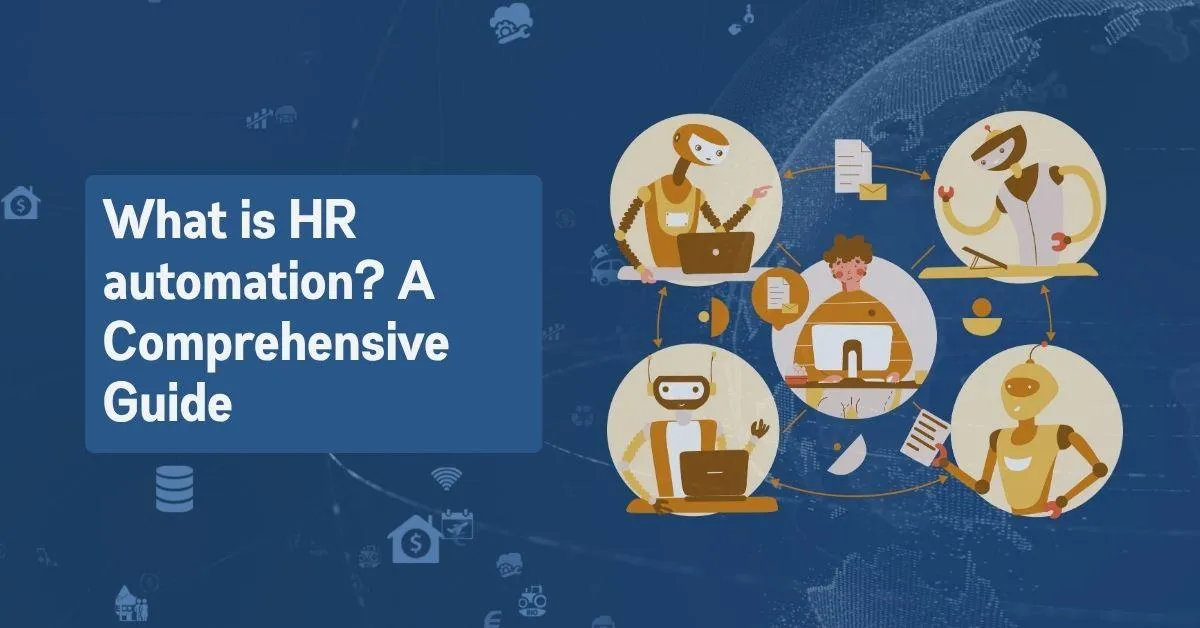
What is HR automation? A Comprehensive Guide
HR automation is often overlooked by small businesses until they realize how many hours they’re spending on repetitive tasks. According to research by Deloitte, HR staff spend 57% of their time on administrative tasks. That’s more than half of their time spent on work that could be automated. Here, the problem isn’t the tasks; it’s how they steal time that could go toward strategy or people-focused activities.
With HR automation, many of these repetitive jobs can be streamlined. HR teams can then focus on creating better strategies for employee engagement, growth, and overall company culture. In this read, we'll walk you through what HR automation is, what advantages it offers, and how you can use it effectively in your business.
What is HR Automation?
Human resource (HR) automation means using software or digital tools to complete repetitive HR tasks automatically, without manual effort from your team. These tools are designed to reduce the time spent on basic administrative work, so your HR team can focus on core activities.
Let's say you have to enter employee attendance data every day. Now, instead of doing this by hand, you can use an HR automation tool that tracks it by itself.
Similarly, instead of replying to every job application email, the tool can screen resumes and send confirmation emails on your behalf. It's the kind of automation that helps businesses operate more efficiently and with fewer errors.
The Benefits of HR Automation for SMBs and Startups
If you're thinking automation might be too advanced or unnecessary for a small team, think again. The benefits of HR automation are practical, measurable, and highly relevant even if you've only a handful of employees.

1. Saves Time and Increases Efficiency
The biggest and most immediate benefit of HR automation is time savings. Manual HR tasks such as entering data, approving leaves, or sending reminders take hours every week. With automation, these processes can be completed in only minutes.
For example, a leave request that earlier took an entire day for approval can now be processed in minutes with a simple click. As a result, your HR team can dedicate more time to improving company culture and employee well-being.
And with a growing business, managing everything non-automatically becomes impractical. That's where automation makes sure tasks are handled on time without delays or errors.
👉 Ready to scale faster? Learn How Can You Influence Automation of Manual Processes to Scale Your Business and free up time for growth.
2. Reduces Human Errors
Even the most experienced HR professionals are prone to making mistakes, especially when dealing with large volumes of data. Human error can lead to costly issues like incorrect payroll calculations, misplaced benefits information, or missed compliance deadlines.
HR automation minimizes the risk of such errors by automating data entry, calculation, and processing. These systems are built to follow strict rules and regulations so that everything is sorted out properly. Plus, with automatic alerts and checks, businesses can catch potential issues before they become a bigger problem.
3. Enhances Decision-Making
“Data is the new oil," said Clive Humby, a mathematician and data science expert.
When it comes to HR, this couldn’t be more true. HR automation gives you access to powerful insights about employee performance, trends in your workforce, and key HR metrics. With all this data at your fingertips, you’re able to make smarter choices regarding talent management, employee training, and overall satisfaction.
For instance, by looking at turnover data, HR managers can spot patterns and take proactive steps to resolve problems before they become huge issues. This makes your HR team more efficient. On top of that, it also helps you grow your business in a more strategic, data-backed way.
4. Improves Employee Experience
A frustrating HR system can affect how employees feel about their workplace. Delayed payslips, slow approvals, and paperwork headaches don’t exactly boost morale. HR automation changes this by offering employees instant access to their information via self-service portals.
So, be it applying for leave, checking salary details, or updating personal info, employees can handle it themselves without waiting for HR’s help. Faster responses and transparency make staff feel valued and supported. Also, when your team is happy with internal processes, they’re more likely to stay engaged and productive.
It’s a win for them and a win for your business.
5. Better Compliance and Documentation
In HR, compliance with labor laws, tax regulations, and company policies is a crucial responsibility. When done manually, the complexity of managing these requirements opens the door to errors, missed deadlines, and incomplete records.
These mistakes may seem minor at first, but can quickly turn into serious issues that cost time, money, and resources. Automated HR systems, on the other hand, help keep everything organized and up-to-date. They handle tasks like generating tax forms, recording employee hours, and maintaining digital contracts, making legal compliance much easier.
Many systems send timely reminders and alerts for upcoming renewals or policy changes. This reduces the risk of costly legal penalties and eases the overall administrative burden.
Important Use Cases of HR Automation
Once you understand what HR automation is and how it can benefit your team, the next logical step is to see where and how it’s actually used. Let's have a look at some use cases of HR automation.

Recruitment and Hiring
One of the most time-consuming tasks for any HR department is handling job applications. From posting jobs to shortlisting resumes and scheduling interviews, the process can take days or even weeks. By using HR automation tools for recruitment:
Job postings can simultaneously go live on multiple platforms.
Applications can be filtered based on pre-set criteria like education, skills, or experience.
Interview invites can be sent automatically to selected candidates, along with calendar integration.
This makes the hiring process faster and keeps candidates happy because they get timely updates and don’t have to wait around.
👉 Hiring dragging on? Discover how AI in HR for Faster Hiring and Smarter Decisions speeds up recruitment and sharpens your choices.
Employee Onboarding
Onboarding a new employee usually means sending welcome emails, sharing documents, picking a mentor, and giving tool access. Doing all this by hand for every new employee takes lots of time and often gets messy. Through automation, all onboarding steps can be turned into a workflow. As soon as an offer is accepted:
A welcome email is generated.
Employee documents are shared through a secure portal.
Orientation tasks are assigned based on role or department.
This makes things easier for HR and helps new employees feel settled and welcomed right from their first day.
Leave and Attendance Management
Manually managing leaves creates confusion. Approvals are forgotten, and HR ends up asking managers for updates. The same goes for attendance. If you're managing it non-automatically, chances are it will be incomplete and inaccurate. With automation tools:
Employees can apply for leave via a self-service portal.
Approvals are automatically routed to managers.
Attendance is tracked using biometric systems or apps and synced with payroll.
As a result, you no longer need to rely on spreadsheets or reminders. Everything becomes clearer and more transparent.
Payroll and Compliance
Payroll mistakes can be costly. They can break the trust your employees have in you. If salaries are paid late, deductions are wrong, or important compliance forms are missed, it can damage your reputation and create unnecessary problems. By automating the payroll process:
Salaries are calculated based on attendance, leaves, and deductions automatically.
Payslips are generated and sent to employees on time.
Tax documents and labor law forms are created in the required formats.
Thanks to automation, salaries get processed on time without you sitting for hours doing calculations and dealing with paperwork every month.
Common HR Automation Tools and Technologies

HR automation solutions come in different forms. Here we'll look at popular HR automation technologies and how they contribute to better HR management.
Robotic Process Automation (RPA): RPA allows software robots to handle monotonous HR tasks, such as generating reports or processing payroll, with little to no human oversight.
Artificial Intelligence (AI) in HR: AI-driven tools can analyze large amounts of data to provide valuable insights on employee performance, satisfaction, and turnover predictions.
Cloud-Based HR Management Systems (HRMS): Cloud HR software allows HR teams to access tools and data from anywhere. They ensure better communication and workflow.
How Purely Startup Turns HR Automation from Idea to Action
When it comes to effectively implementing HR automation, finding the right automation tools is only part of the equation. It's equally important to have a partner who understands your unique needs and can integrate these tools seamlessly into your operations.
That's where we at Purely Startup excel.
Our approach goes beyond offering standard automation tools. We collaborate closely with you to create custom solutions tailored perfectly to your business. Whether it’s automating recruitment, streamlining payroll, or simplifying employee onboarding, we make sure every system is built to fit the way your team already works.
This hands-on, people-first strategy means you’re not left alone dealing with software setups or clunky processes. Instead, you get systems built around your workflows. Transitions become smooth. Processes feel natural. And you see real, measurable improvements in efficiency, accuracy, and the overall employee experience.
Final Word from Purely Startup
If you’ve made it this far, you're probably starting to see how HR automation can truly transform the way your business operates. Cutting down on monotonous tasks frees up your team to focus on building a better work culture and improving employee engagement. The right automation tools can save time, reduce mistakes, and make daily tasks run smoothly.
In case you’re still unsure, Purely Startup is here to guide you. We’ll work with you to implement the right HR automation tools that fit your business needs. Let us take the load off so you can focus on growing your business. Connect with us at [email protected].


